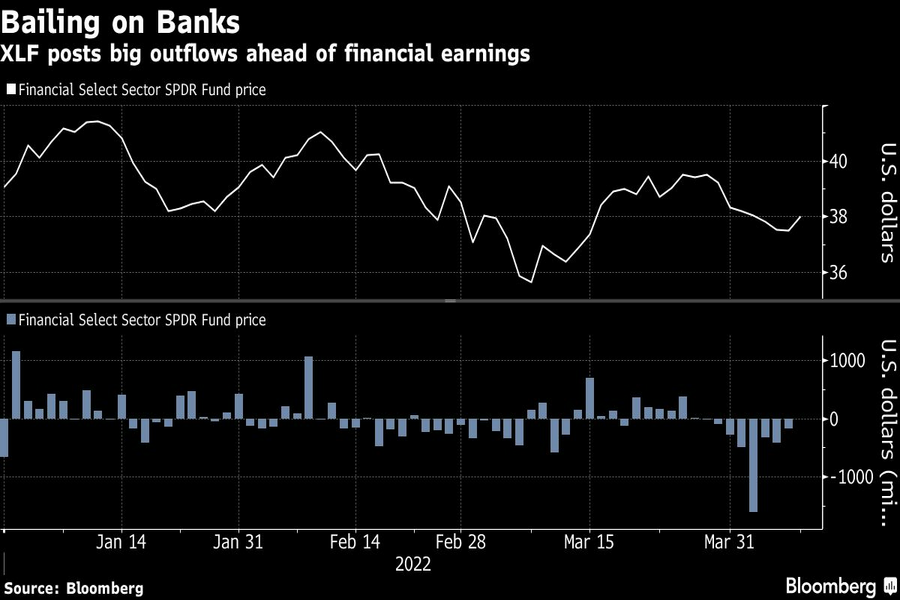

Exchange-traded fund investors are bailing on bank stocks in a big way just before the earnings season kicks off.
More than $2.5 billion has exited the $42 billion Financial Select Sector SPDR Fund (XLF) last week, putting the ETF on track for the largest one-week outflow since June 2020, according to data compiled by Bloomberg. Prior to last Friday’s 1.2% gain, XLF had dropped for seven straight days.
While growing anxiety about a potential recession — amplified by the Treasury yield curve’s recent brief inversion — explains the distaste for financial stocks, that underperformance sets the sector up for a rebound as the biggest banks take the stage, according to Wells Fargo. JPMorgan Chase & Co., Citigroup Inc. and Goldman Sachs Group Inc. are among the firms reporting results next week.

“If we’re talking about recession, we’re talking about credit. If credit goes bad, that’s a problem,” Chris Harvey, head of equity strategy at Wells Fargo, said in a Bloomberg Television interview. “At the end of the day, we don’t think the underlying fundamentals are going to be as bad as feared, we don’t think guidance will be as bad as feared, and what we’re going to see is a relief rally for the banks.”
While XLF initially rode the rise Treasury yields higher, performance has recently sputtered. XLF has declined nearly 3% so far this year, compared with a 5.5% drop for the S&P 500.

The approval of the pay proposal, which handsomely compensates its CEO and president, bolsters claims that big payouts are a must in the war to retain leadership.

Integrated Partners is adding a husband-wife tandem to its network in Missouri as Kestra onboards a father-son advisor duo from UBS.

Futures indicate stocks will build on Tuesday's rally.

Cost of living still tops concerns about negative impacts on personal finances

Financial advisors remain vital allies even as DIY investing grows
RIAs face rising regulatory pressure in 2025. Forward-looking firms are responding with embedded technology, not more paperwork.
As inheritances are set to reshape client portfolios and next-gen heirs demand digital-first experiences, firms are retooling their wealth tech stacks and succession models in real time.
